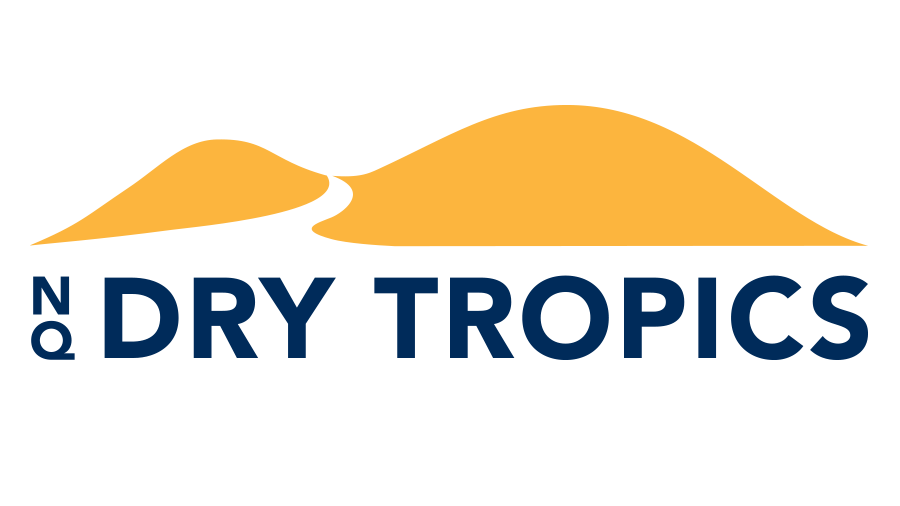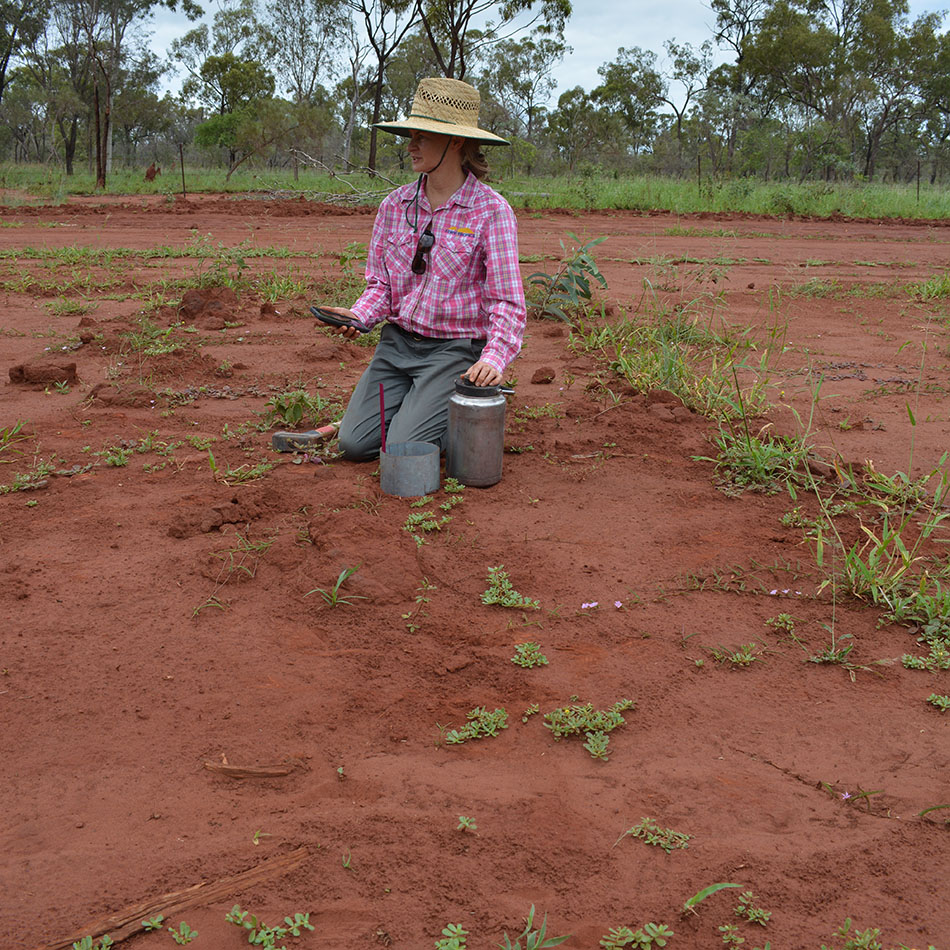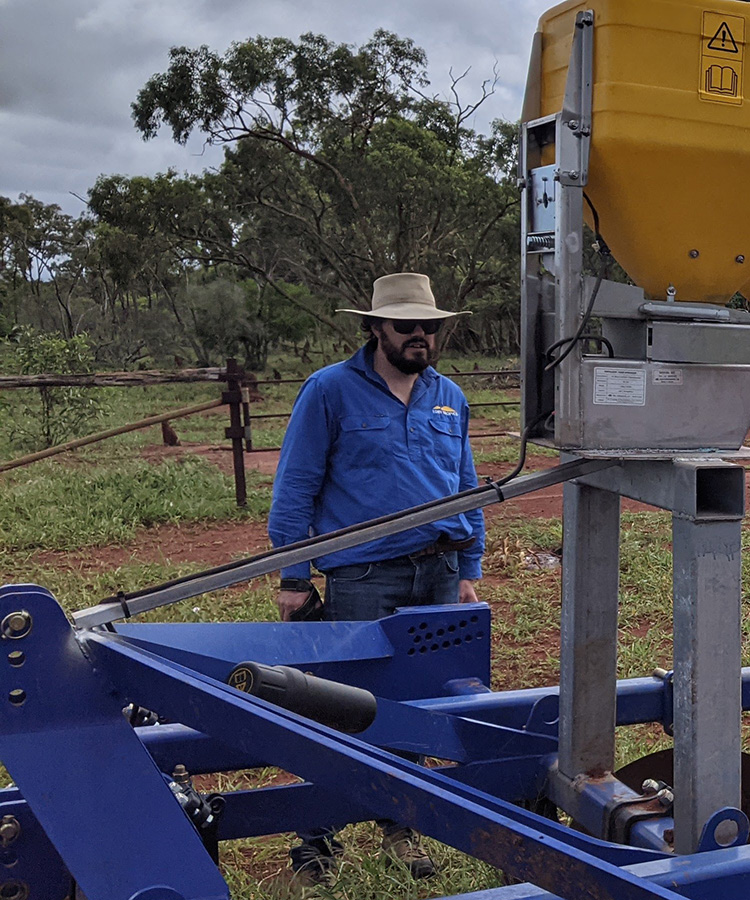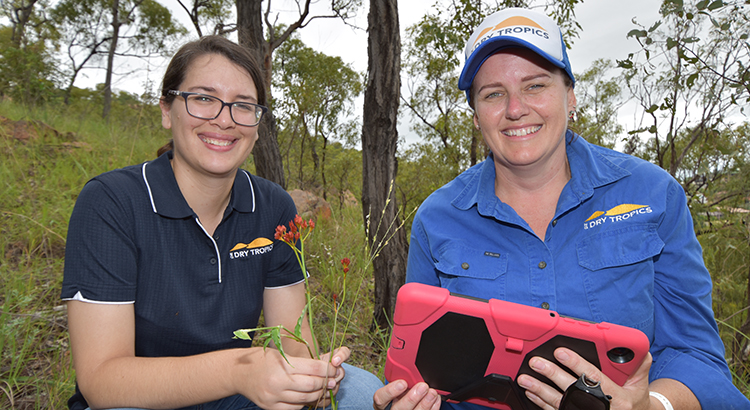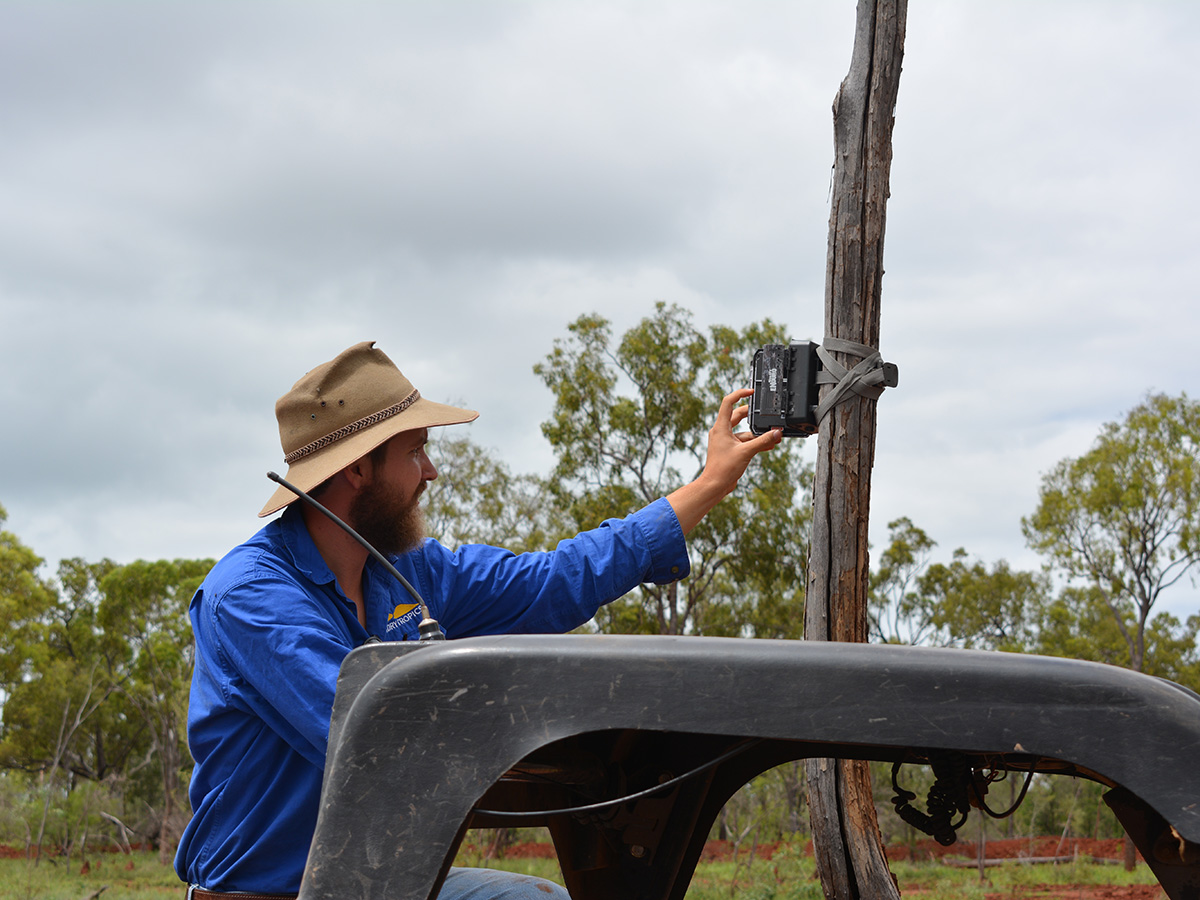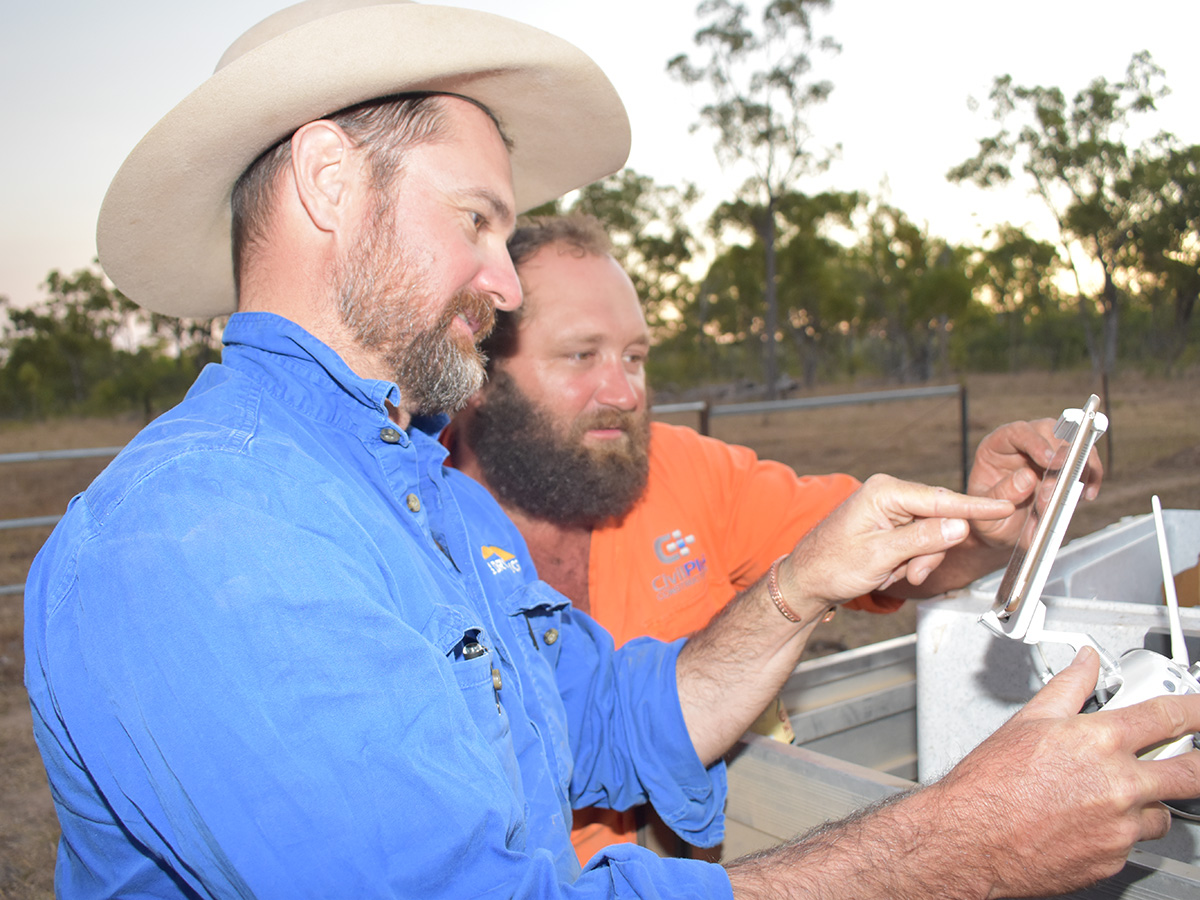Herding change through grassroots recovery
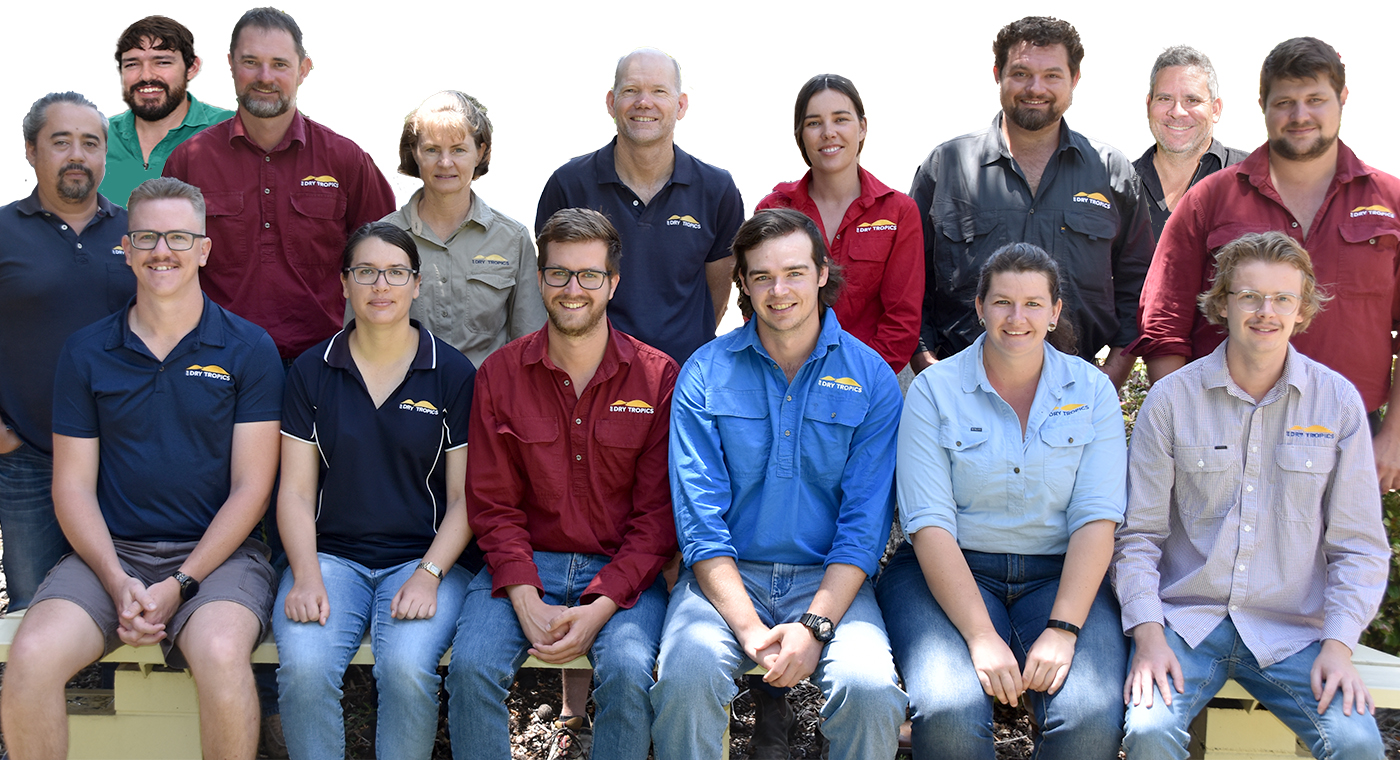
The Sustainable Agriculture Grazing Team: Pictured (back row, from left) are: Senior Grazing Field officers Jade Fraser, Joe O’Reagain, and Chris Poole, Soil Conservation Officer Bernie Claussen, Program Manager Rob Hunt, Senior Grazing Field Officer Olivia Penman, Grazing Field Officer Bowie Pink, Environmental Engineer Daniel Hazelman and Grazing Field Officer Brad Martin and (seated), Grazing Field Officer Angus Hogg, Senior Projects Officer Carleigh Drew, Grazing Team Leader Josh Nicholls, Grazing Field officers Tristan Gibson (Bowen), Ashleigh Kilgannon, and Cameron Sims.
Reducing fine sediment reaching the reef by improving the condition of grazing land
AT A GLANCE
Project ends: December, 2023.
Eligibility: Upper and East Burdekin graziers.
Detail: Grants available to support sediment-saving projects.
Contact: JOSH NICHOLLS (josh.nicholls@nqdrytropics.com.au).
NQ Dry Tropics has embarked on an ambitious project to create a legacy of improved grazing practices in the Upper and East Burdekin sub-catchments.
The project is designed to reverse landscape decline, protect biodiversity, build soil health, improve beef production, and increase business profitability.
By reducing hillslope, streambank and gully erosion, it will prevent more than 49 tonnes of fine sediment from being deposited in the Great Barrier Reef Lagoon during the next three years. The approach combines professional education with continued support of dedicated grazing extension services.
NQ Dry Tropics Sustainable Agriculture Manager Rob Hunt said the goal was to improve land condition through adopting improved grazing practices, better managed riparian zones and address small scale gully erosion and scalds. Incentive funding is available to help graziers make practice changes to improve degraded land to A or B condition.
The Herding Change Through Grassroots Recovery project is funded by the partnership between the Australian Government’s Reef Trust and the Great Barrier Reef Foundation, and delivered by NQ Dry Tropics.
The project will support landholders to adopt grazing practices and associated processes (eg. forage budgeting) that maintain end-of-dry-season ground cover, through one-on-one extension, peer-to-peer programs and targeted on-ground works in high-priority areas.
Soil Conservationist Officer conducting soil tests for texture and infiltration rates.
Management plans that pinpoint highly erosive areas and identify grazing management practice improvements will guide changes undertaken by landholders, while land condition will be monitored using remote sensing and Land Condition Assessment Tool (LCAT) sites. Producer groups will deliver shared local ideas, explore opportunities to increase efficiencies and implement strategies to address water quality issues at a sub-catchment level.
NQ Dry Tropics Senior Grazing Officer Joe O’Reagain.
NQ Dry Tropics will use a specially-designed incentive program to support landholders as they adopt practice changes demonstrating large-scale improvements for water quality outcomes.
Results will be reported through the Paddock to Reef (P2R) program.
NQ Dry Tropics Cane and Grazing Field Officer Carleigh Drew (left) with Grazing Team Leader Linda Anderson.
This project builds on the strengths and successful past investment of water quality projects undertaken by NQ Dry Tropics.
The project will collaborate with extension programs being rolled out across the Burdekin region, to ensure cost-effective shared services, consistent messaging about water-quality, adoption of consistent tools and approaches, and assessment and extension of the latest science and innovative practices into the grazing industry.
NQ Dry Tropics Senior Grazing Officer Josh Nicholls sets up a time lapse camera monitor.
NQ Dry Tropics Senior Grazing Officer Chris Poole (left) with New Moon Station grazier Cam Heading.
